Calling off the sheepdogs in the Swiss Alps
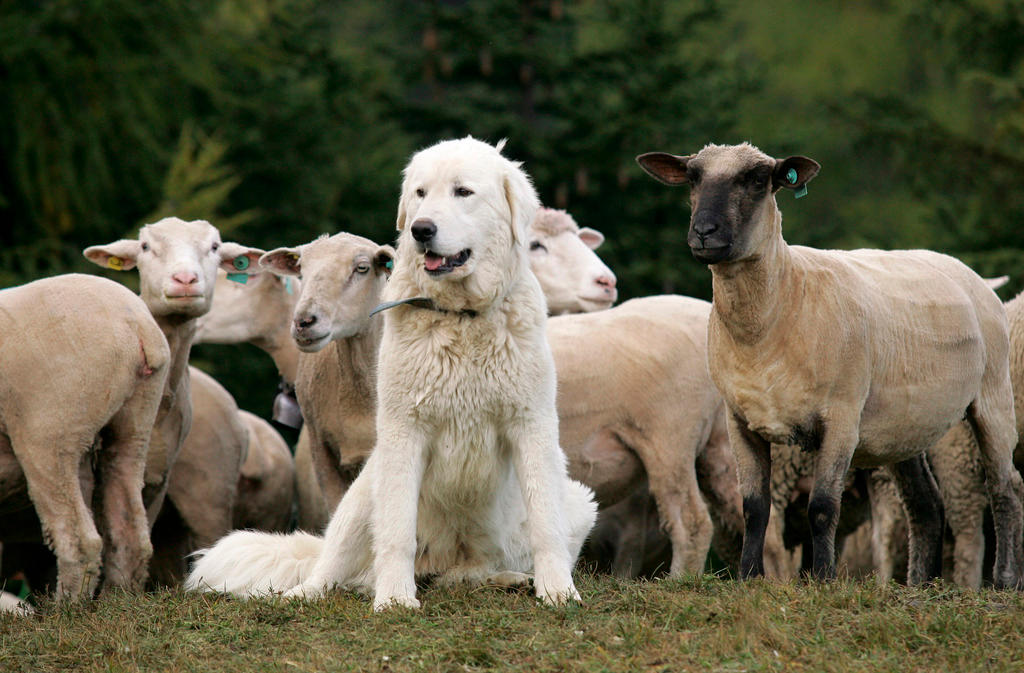
Mountain dwellers in the area around the Gotthard Pass worry that guard dogs not only scare off wolves and bears, but also summer visitors. As a result, they’ve collected signatures to seek a ban against the animals. This has triggered a complex conflict about the compatibility of tradition and tourism.
Black and white dots are scattered across the meadow, while in the spaces between, you can make out a brownish walking trail meandering towards the UnteralptalExternal link near the town of Andermatt.
We are in the canton of Uri, on the north side of the Gotthard pass, a region that has received much attention since a high-profile development by Egyptian investor Samih Sawiris transformed the mountain village into a tourism destination.
Suddenly, one of the dots, slightly bigger and brighter than the others, breaks out of the herd. It runs towards us with a loud and distinctive bark. This is certainly not a sheep; it’s a guard dog on a defence mission.External link
Like all of its “protection squad colleagues”, this snow-white Maremma SheepdogExternal link (Maremmano-Abruzzese) grew up with sheep. In fact, these guard dogs are such an integral part of a flock that they believe they are sheep themselves, albeit with a bit more bite and a more forceful voice. Their job is to scare off anything that signals danger: first and foremost, wolves, bears and lynx, but sometimes simply two women going for a hike. Just like my friend and I about a year ago.
As the dog runs towards us barking and excitedly wagging its tail, we stay as calm as possible. We try to calm down the hairy white beast by sweet-talking it, as the information board at the start of the hike had advised. But it remains firmly at our heels, barking its lungs out. Though we know that it will probably not harm us – it’s simply doing its job – our hearts race with fear.
A piece of the mountains
The Swiss Alps have become crowded. Mountain resorts have come up with a growing number of attractive offers to entice tourists. After all, hotels and cable car companies also need to make a living in the summer months. Animals graze between downhill trails and hiking paths, high ropes courses, via ferratas and summer sledge runs, and they are often protected by these white sheepdogs that are trained to fend off intruders.
Wolves, bears and lynx are protected species supported by animal rights organisations, and they are about to reclaim their mountainous territory in Switzerland. Some of these predators use these unprotected herds of animals as their source of food.
However, 150 locals have now come together in an effort to ban the vigilant and effective guard dogs. In spring this year, they signed a petition dubbed “IG [interest group] No Guard Dogs”. In an interview with the German-language Tages-Anzeiger newspaper, the president of the interest group, Columban Russi, explained that the region had invested a lot of money in summer tourism, but that guard dogs continued to scare away the tourists. For this reason, the IG was calling for a complete ban on the beasts. There had been several incidents, he said, and some tourists had even been bitten.
Russi has since stopped speaking to the media. He said reporting was one-sided, focusing too much on Ernst Vogel, the owner of the sheep and dogs, and who is deemed to be the actual initiator of this hype.
‘A question of time’
Unlike a year ago, this time there are no dogs barking when I walk towards Vogel’s herd. The only sound I can hear is the bleating of the sheep. Around 1,100 animals graze here in the Unteralp, but now they are fenced in. The shepherd from Lucerne and his team are busy cutting claws, deworming the animals and marking the sheep’s woolly backs with red paint.
“It’s a very good pasture,” Vogel says. The animals quickly put on weight grazing on the lush meadow. This was the reason why he had accepted the dog ban which the local authority, the Korporation UrserenExternal link, placed on him for the summer. Vogel also emphasises that the national Agricultural Extension Centre (Agridea)External link only registered one case involving one of his two guard dogs, and it was only a small bite.
At the beginning of 2019, the local corporation together with the interest group will then decide whether they want to turn the signatures and petition into an initiative. This way, they could launch a referendum on the permanent removal of guard dogs in the Unteralptal – the first ever referendum on banning guard dogs from a pasture.
Wolf-proof pen?
Vogel leans on the flimsy fence designed to protect his animals and pushes his sunglasses back onto his forehead. “We sit between two packs of wolves here; one in Graubünden and another in Valais,” he says. “I haven’t lost a sheep yet, but it’s only a matter of time until the first is killed.” Just recently, a wolf was sighted in the area.
There are hardly any alternatives to keeping guard dogs, according to the shepherd.
“Theoretically, you could build a wolf-proof pen,” he says. However, this would be difficult on steep slopes. The protection fence needed for such a pen would consist of three different elements: a so-called fladry fence with broad colourful plastic bands flapping in the wind and a double electric fence. And as the sheep systematically graze the fenced-in area, the pen would have to be moved every single day. This would take about five hours every day.
“I would have to employ another shepherd for this,” Vogel says.
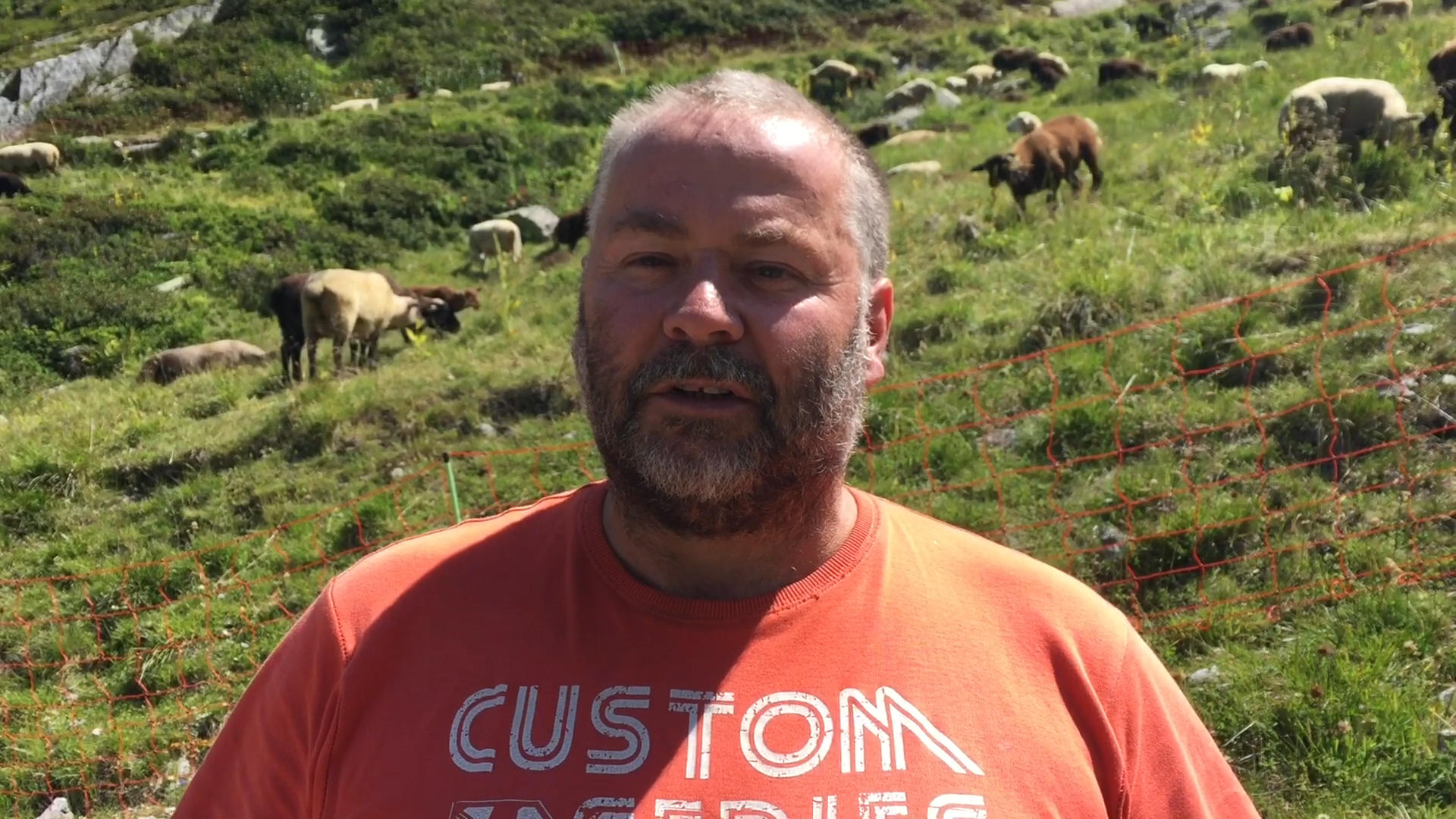
More
Sheepdogs or fences? The answer is clear
WWF joins the fight
The World Wildlife Fund (WWF) has also joined the effort to prevent herd protection falling victim to tensions involving tourism and the alpine economy. The organisation, which works for wildlife conservation and endangered species, has been fighting for the resettlement of wolves, lynx and bears in Switzerland for years.
According to spokesman Christoph Rytz, WWF’s Uri section has submitted a written request to both canton and corporation asking them to find viable solutions with the support of government experts. “Good solutions need political will, determination and time,” says Rytz.
Nobody in the local community of Andermatt is currently willing to comment on the guard dog issue. Commune president Yvonne Baumann responded to our request in an email: “We have dealt with this issue extensively and decided that the community will not comment on it until further notice.”
‘Compatibility needed’
How can tradition and tourism be compatible in the future? Flurin Riedi, Andermatt’s tourism director, says: “I believe that Alpine economy and tourism must be compatible.” Whether or not a ban is the right answer, he doesn’t know. “In my opinion, it’s important that hikers and other tourists, who act and behave correspondingly, can walk safely on the trails.”
It may be that on the path to a smooth and understanding coexistence between bikers, hikers, farmers and other alpine dwellers in the Swiss mountains, the same advice applies as when you meet the big, white, hot-tempered guard dogs. Try to stay cool, calm and collected.
Translated from German by Billi Bierling, swissinfo.ch

In compliance with the JTI standards
More: SWI swissinfo.ch certified by the Journalism Trust Initiative










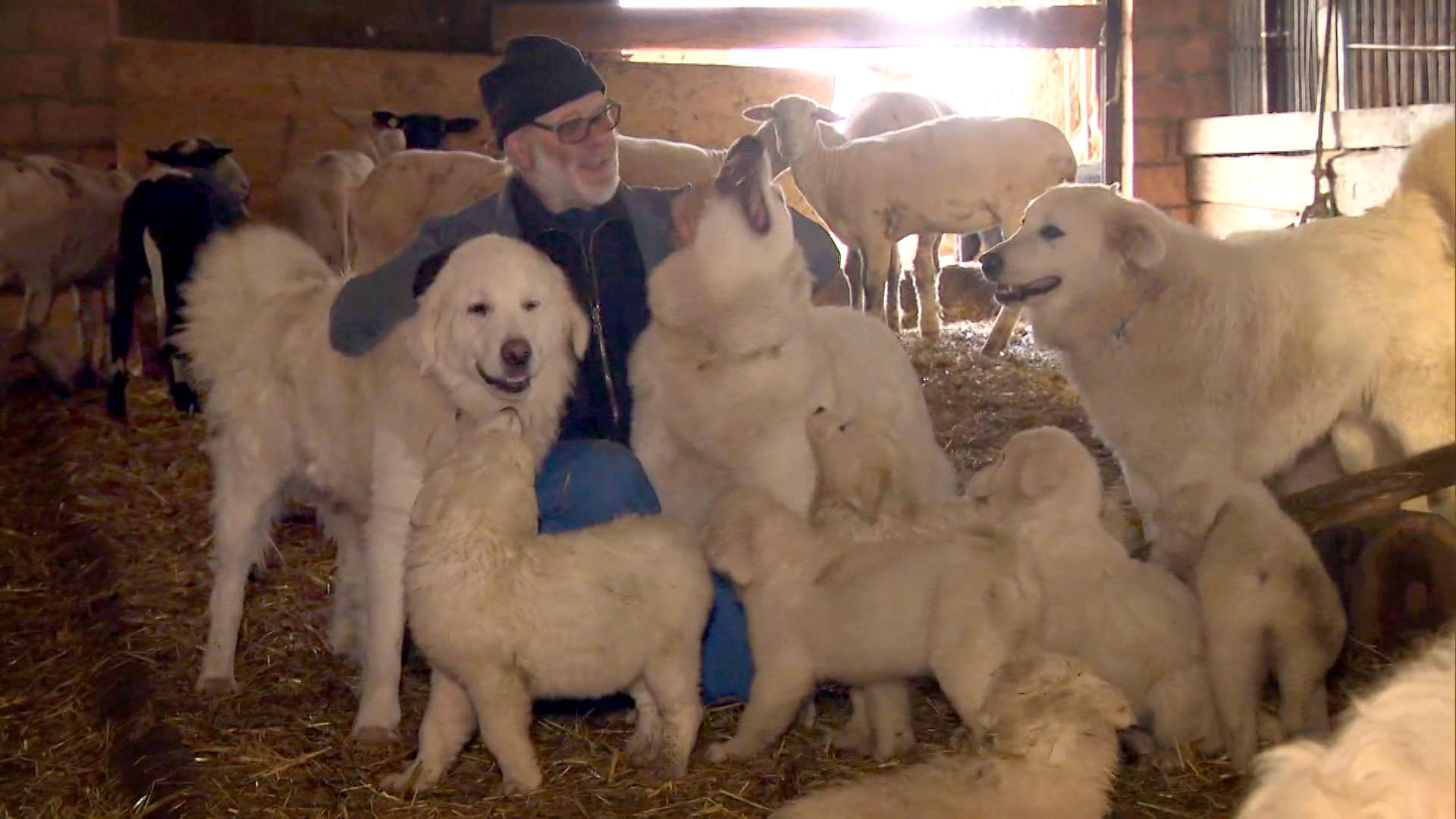
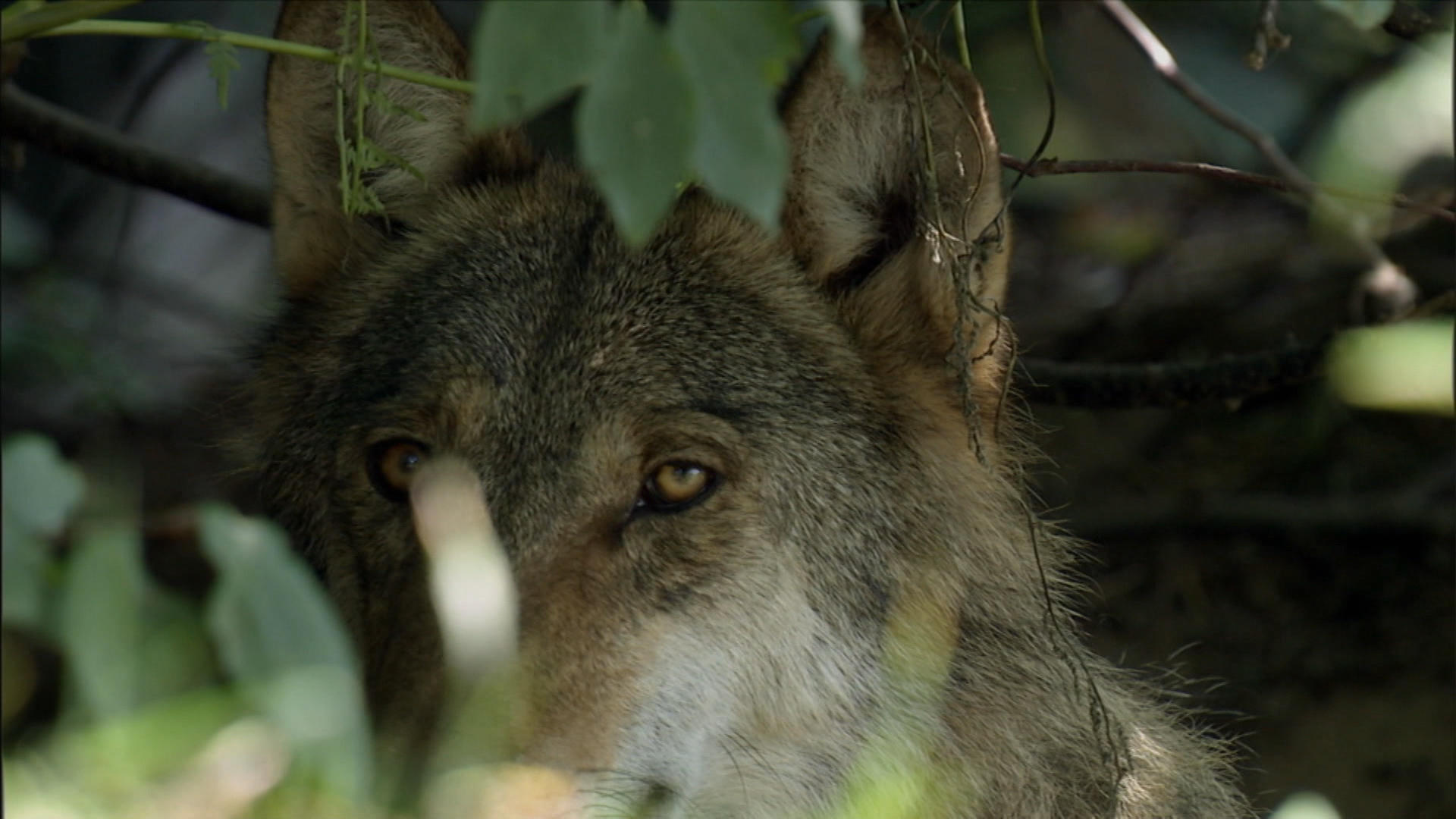

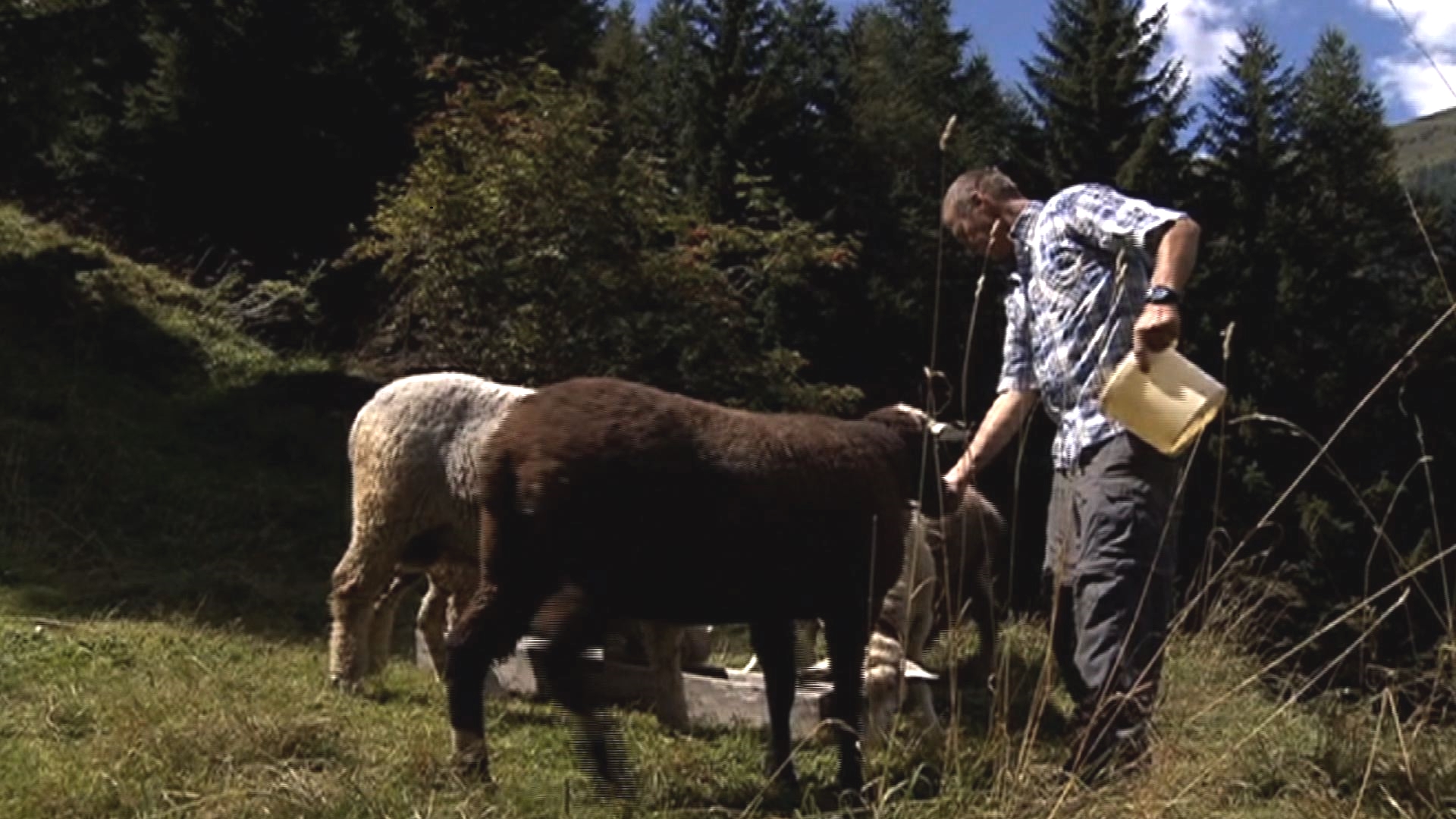
You can find an overview of ongoing debates with our journalists here . Please join us!
If you want to start a conversation about a topic raised in this article or want to report factual errors, email us at english@swissinfo.ch.